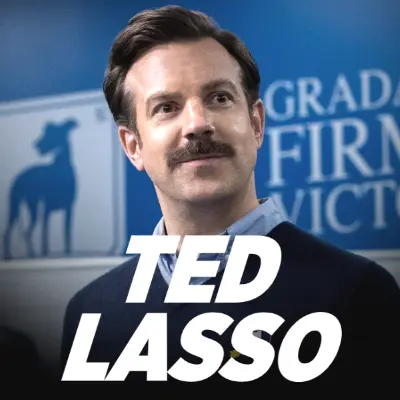TV is obsessed with "white guys in crisis": From The White Lotus to Ted Lasso to Kevin Can F**k Himself and Rutherford Falls
-

"This summer, television became preoccupied with a question: What should happen to men?" says Kathryn VanArendonk. "Not all men — TV has not been inundated with stories about Black men, migrant men, trans men, men who struggle to make ends meet by holding down three gig-economy micro-jobs. One conundrum has kept cropping up in various genres and iterations: The white guys who used to be default protagonists on TV and in American life, all of the beleaguered dads, bad bosses, authoritative leaders, and wild-card mavericks, are no longer the main characters. So what happens to that guy now? Should he be erased? Can he be rehabilitated, his entitlement washed away? Where is he supposed to go? Series from this summer have found various answers to that question. Perhaps the white guy has a meltdown, or he leans into his right to take up space; maybe the best course of action is to plot his demise. In every case, it’s less a clear answer and more a thought experiment for an awkward cultural snarl — with a vague gesture about how to loosen it slightly. Although many of these shows include people of color on the directing staff or in the writers’ room, they are all created or co-created by white producers, and it’s tempting to see their own plaintive self-concern at work in them. After all, none of the shows simply jettison the white guy. They hold him close. They observe him, mock him, jab at him mercilessly. Even as he becomes a story’s central problem rather than its central character, there he still is in the middle of the narrative." VanArendonk points out that Kevin Can F**k Himself and Rutherford Falls have re-centered the white male protagonist who would've been the focus of their show in past decades. "The White Lotus, an HBO drama about wealthy white families vacationing at a Hawaiian resort, gets at the problem with a more lacerating edge," says VanArendonk. "The show is a critique of whiteness, not just white men. But it offers the most pointed soliloquies to its male characters — in particular, Mark (Steve Zahn), a classic TV-dad figure who feels emasculated by his wife’s professional success and frustrated by his daughter’s political animus toward her family’s privilege...Somewhere not far under the surface, though, The White Lotus is sincerely asking: Should he just shut up? Fade away? In the show’s most positive vision of a possible outcome, white men run away from their lives entirely." VanArendonk adds that Ted Lasso "is a glaring exception, a counterpoint so stark it’s as though someone unfurled a banner that reads YES, YOU CAN STILL HAVE A BELOVED WHITE MALE TV PROTAGANIST — ASK ME HOW! Now in its second season, the show’s eponymous Ted (Jason Sudeikis) is an American football coach brought on to coach an English soccer team. He represents the model of an ideal, considerate, unpretentious white man. Why worry about the specter of the Former Main Guy lurking around the joint when you can swap him out for his preternaturally positive twin, Nu Main Guy, who approaches all his peers with unfailing empathy and respect? It is TV comedy as modern-parenting technique, rewarding good behavior and ignoring the bad stuff — the viewers are the children who require wholesome, appropriate models, their wounded psyches longing to be soothed. What is Ted Lasso if not Father Knows Best with contemporary, reformed ideas of what 'best' means? (Father knows so much, in fact, that he even knows he is not perfect and is operating in an unfair patriarchal system!) Shows like The Chair and Kevin Can F**k Himself are messier, and at times didactic, but they capture a friction that feels truer than Ted Lasso’s clean alternative. Ted has skipped ahead. It has ignored the difficulties of how to transform entitlement into humility and instead presented a Fixed Version of the American Man as a fait accompli. The fantasy of emotionally intelligent, empathetic American masculinity arrives fully formed. It’s an easier show to watch. It begins with answers instead of thorny, intractable muddles. It’s odd because, within the world of TV, there is a simple answer to the puzzle these shows pose. They could just forget the Main Guy altogether, at least for a while (and it’s worth noting that most recent shows led by creators of color do not frame white masculinity as the fundamental obstacle for their characters)."
TOPICS: Ted Lasso, The Chair, Kevin Can F**k Himself, Rutherford Falls, The White Lotus, Men and TV
